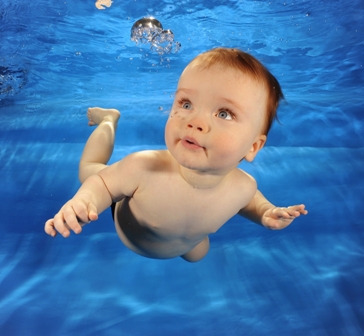
Water Babies: floating the idea of franchising opportunities
Franchising in the UK sports and leisure industry: a beginner's guide
Steve Franks explains why franchising works for so many businesses and how it has helped Water Babies become the world’s largest commercial baby swimming company.

Water Babies: floating the idea of franchising opportunities
What is franchising? Franchising, according to Wikipedia, is the practice of using another firm’s successful business model . The term ‘franchising’ can describe a variety of different business relationships but it is most commonly used to describe what is known as ‘business format franchising’. This is when a license is granted from one party (the franchisor) to another (the franchisee) to use the franchisor’s business idea and trade under their trademark or trade name, benefiting from the franchisor’s help and support. The franchisor receives an initial fee from the franchisee, along with ongoing management service fees, which are usually based on a percentage of annual turnover. For their part, the franchisor’s obligation is to provide ongoing business support, training and product development to their franchise network. While franchisees effectively own the outlet they run, the franchisor maintains control over how their products are marketed and sold, and how their business idea is used.
Franchising has grown steadily in the UK. The UK franchise industry contributed £11.8 billion to the UK’s gross domestic product last year, an increase of £400 million from the previous year. The overall number of franchise systems in the UK is 842 and there has been an 86% increase in the number of female franchisees. The average (mean) turnover for a franchised business is £353,000 and 89% of franchisees reported profitability (compared with 70% in the last recession of the 1990s).
Franchising repeatedly out-performs other start-up businesses. Its formula of a locally owned and run enterprise, driven by a small business owner with the benefits of branding and economies of scale, together with support from the wider network, gives the consumer the best of both worlds and the business a far greater chance of success. But how do you decide whether or not your business is suitable for franchising? The basic criteria are that the business concept needs to be proven, easy to replicate, have a distinctive name and image, be easy to demonstrate to a third party and be able to generate sufficient profit for both parties. The most important thing to understand is that when a company enters into franchising it is getting into a different business to the one it is currently in: the business of recruiting, training and supporting franchisees. This requires a unique blend of culture and skills and is not a decision to be taken lightly. In a nutshell, in order to set up a successful franchise business you need to have a proven business model, sufficient capital, a long-term vision, a culture that is right for franchising and the determination to see it through.
Franchising is, however, a complex business model and needs to be tackled with the help of an expert. Consistency is key in franchising – ensuring that every franchise, within reason, gets exactly the same deal – so it is crucial that everything is watertight and very well structured from the outset. Make sure you get professional help if you plan to franchise.
Why would you franchise your business and what’s in it for the franchisee? Franchising enables organisations to grow both quickly and cost-effectively because they are using the franchisee’s capital, time and effort, rather than their own, which opening company-owned outlets would normally require. The franchisor also benefits from having motivated owner-operators working with them who tend to be hungrier for success than employees. For the franchisee franchising is lower risk than ‘going it alone’ – a remarkable 9 out of 10 franchises in the UK are successful – and there is considerable help in setting up the business, meaning you can hit the ground running, as well as ongoing training and support. Then you need to consider the benefits of collective marketing and strengthening of the brand and the use of proven systems and tools that can be reproduced at a much lower cost.
Water Babies was established in 2002 with an initial start-up fund of £5,000. Franchised in 2003, it has since grown to become the world’s largest commercial baby swimming company. The company is currently teaching more than 23,000 babies and toddlers in over 400 pools each week, covering more than 85% of the UK through a professional network of 35 franchises with international operations in Ireland and Sydney, Australia. Training was a key issue for Water Babies. As an organisation it was shocked to find that there were no minimum qualifications when it came to setting up a swim school and therefore the company decided that it would aim to set a new benchmark standard when it came to the quality of training. Water Babies now has a rigorous training programme for all of its instructors, which is 100 hours more than the swimming industry standard. Two further income streams have since been added to the core business of teaching babies to swim: underwater photography, which next year is forecast to produce more than 60,000 shots and is currently the largest producer in the world of underwater photography of babies and toddlers; and the retail of associated products to support the courses like nappies, goggles and wetsuits.
While the advantages of bulk purchasing power certainly come into play in the world of franchising, at Water Babies creating a franchise ‘family’ is about far more than simply reducing your costs. It is about creating a set of values that are the same across the board, regardless of whether clients are swimming in Dundee, Oxford or Hull. It is about swapping ideas on everything associated with the business, both in terms of general best practice and what we actually do. And it is about being there to support one another and always being able to empathise. We actively encourage franchisees to communicate with one another and to share their experiences – both good and not so good – so that we can all learn from what has happened to everyone else.
Across the leisure industry the market for leisure franchises has grown enormously over the past few years for several reasons, not least because being active has become equated with being healthy. More people than ever are actively taking part in sport and leisure as a hobby and, with an increasingly larger slice of our disposable income being spent on leisure each year, franchises in this sector are tapping into a constantly growing market. The UK’s interest in sport continues on an upward curve as the 2012 Olympics approaches and, coupled with the government’s commitment to halt the rise in childhood obesity, children’s sports provision remains a buoyant market despite the recession.
Steve Franks is managing director of Water Babies.
The Leisure Review, February 2011
© Copyright of all material on this site is retained by The Leisure Review or the individual contributors where stated. Contact The Leisure Review for details.
Download a pdf version of this article for printing
Water Babies' franchisees demonstrate an open-door policy

Steve Franks
Top image: Finley Davies Muir photographed by Jez Dixon courtesy of Water Babies